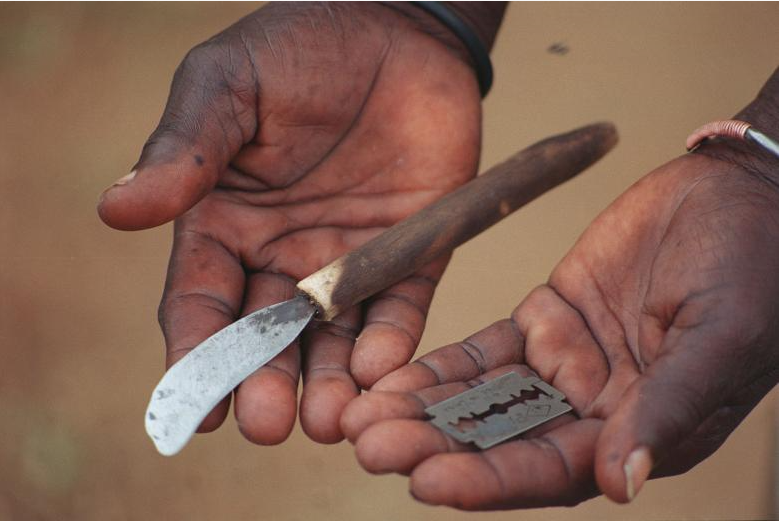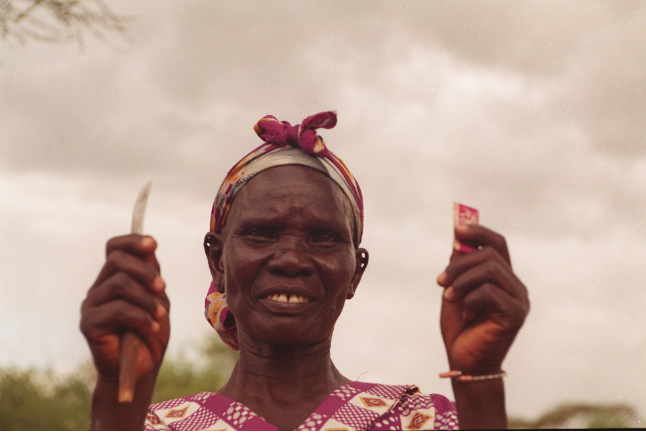
In a society that continually strives for progress and gender equality, it is disheartening to witness the persistence of archaic practices that violate the rights and well-being of women. Among these practices, Female Genital Mutilation (FGM) stands as a dark specter haunting the lives of countless women and girls in Somaliland, robbing them of their physical integrity and emotional well-being. In this article, we delve into the causes and negative effects of FGM, highlighting its outdated and barbaric nature. We also shed light on the commendable efforts of organizations like the Somaliland Women’s Empowerment Network (SWEN) in their battle against this heinous act, and the recent advancements in legislation and community awareness that are steering Somaliland towards a future free from the horrors of FGM.
FGM, deeply rooted in cultural norms and traditions, inflicts irreversible harm on its victims. For too long, girls have suffered in silence, enduring excruciating pain and lifelong consequences. The reasons behind the perpetuation of FGM are complex, ranging from preserving cultural identity and ensuring marriageability to the misguided belief that it promotes cleanliness and curbs promiscuity. However, it is crucial to recognize that these justifications are grounded in archaic and flawed thinking that has no place in modern society.

The practice of FGM represents a chilling reminder of the dark depths to which humanity can descend. As the world progresses, it is distressing to witness the persistence of this barbaric act, rooted in outdated traditions and beliefs. The physical and psychological consequences of FGM are profound and cannot be overstated. The victims endure immense pain during the procedure and are left scarred for life, both physically and emotionally. Complications can arise during childbirth, leading to higher maternal and infant mortality rates. Moreover, FGM perpetuates a cycle of discrimination, denying girls their right to education, health, and personal autonomy.
While the situation may seem daunting, there is hope on the horizon. Organizations like the Somaliland Women’s Empowerment Network (SWEN) are at the forefront of the fight against FGM. They tirelessly advocate for change, working to raise awareness about the negative effects of FGM and engaging communities through education, empowerment, and counseling. By shining a light on the true consequences of FGM, SWEN and other organizations are chipping away at the walls of ignorance and resistance surrounding this issue.
In recent years, Somaliland has made significant strides towards eradicating FGM. The passing of legislation criminalizing the practice in 2021 was a monumental step forward. However, implementation and enforcement remain key challenges, especially in remote and conservative areas where FGM is deeply entrenched. But progress is evident, and the commitment of the Somaliland government to safeguard the rights and dignity of its women is commendable.
One of the most promising signs of change is the growing awareness within communities. Dialogue and education have started to reshape mindsets and challenge the acceptance of FGM. Community leaders, religious figures, and activists are playing pivotal roles in dismantling age-old norms and traditions that perpetuate this harmful practice. They are paving the way for a more enlightened society that cherishes the physical and emotional well-being of women.
Moreover, empowering young girls with education and alternative opportunities is key to breaking the cycle of FGM. By investing in education and vocational training, we equip them with the tools to envision a future free from the shackles of this brutal practice. Furthermore, engaging men and boys in the conversation is crucial, as they too play an integral role in advocating for change and breaking down the barriers that enable FGM.
In conclusion, the fight against Female Genital Mutilation in Somaliland is a journey that requires collective effort and unwavering determination. We must amplify the voices of survivors, empathize with their plight, and stand together as a community to eradicate FGM once and for all. The work of organizations like the Somaliland Women’s Empowerment Network (SWEN) and the advances in legislation and community awareness give us hope that change is possible. Let us unite, educate, and empower the next generation, creating a society where the physical and emotional well-being of women is safeguarded and cherished. Only then can Somaliland truly progress towards a future where the horrors of Female Genital Mutilation are mere remnants of a bygone era.

